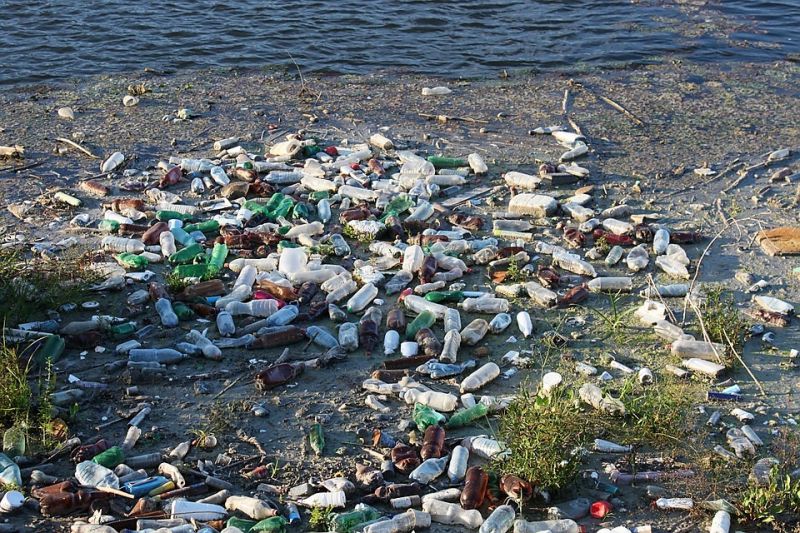Effects of Pollution on Freshwater
Published on by Water Network Research, Official research team of The Water Network in Social
As technology improves, scientists are able to detect more pollutants, and at smaller concentrations, in Earth’s freshwater bodies.
Containing traces of contaminants ranging from birth control pills and sunscreen to pesticides and petroleum, our planet's lakes, rivers, streams, and groundwater are often a chemical cocktail.
 Beyond synthetic pollution, freshwater is also the end point for biological waste, in the form of human sewage, animal excrement, and rainwater runoff flavored by nutrient-rich fertilizers from yards and farms.
Beyond synthetic pollution, freshwater is also the end point for biological waste, in the form of human sewage, animal excrement, and rainwater runoff flavored by nutrient-rich fertilizers from yards and farms.
These nutrients find their way through river systems into seas, sometimes creating coastal ocean zones void of oxygen—and therefore aquatic life—and making the connection between land and sea painfully obvious. When you dump paint down the drain, it often ends up in the ocean, via freshwater systems.
In the developed world, regulation has restricted industry and agricultural operations from pouring pollutants into lakes, streams, and rivers. Technology has also offered a solution in the form of expensive filtration and treatment plants that make our drinking water safe to consume. Some cities are even promoting "green" infrastructure, such as green roofs and rain gardens, as a way to naturally filter out pollutants.
But you may find a different picture in parts of the developing world, where there is less infrastructure—politically, economically, and technically—to deal with the barrage of pollution threats facing freshwater and all of the species that rely on it.
FAST FACTS
- In developing countries, 70 percent of industrial wastes are dumped untreated into waters, polluting the usable water supply.
- On average, 22 million tons of fertilizers and chemicals are used each year.
- "Green roofs" help prevent sewer overflows and help to catch stormwater and cool the environment.
Source of Water Pollution facts: National Geographic
Media
Taxonomy
- Water Pollution
- Environment
- Pollution
- Freshwater
- Pollution
3 Comments
-
Ending Marine Pollution is not only sensible and respectful to all Life, but it goes along way to tackling humanity's arguably greatest shortcomings, and it's really not that difficult to realise the immediate benefits when undertaking such a ready, practical course of action www.baleen.com
-
I agree with Prof. Partha Sarathi Datta that until there is a political will in the developing countries to force industry to clean their waste water not a lot will happen.
From what we have found all over the world is that large companies and corporations seem more interested in their bottom accounting line than saving the planet.
If the looked at it overall instead of in compartments in the business they would see that cleaning and reusing contaminated waste water would actually save them money. However we have found that, for most companies, it is alright to spend someone elses budget but not yours.
There are many solutions to clean water, from small scale to large, that do not cost as much as companies think.
-
@ Effects of Pollution on Freshwater.
Despite being good concept, "Green" infrastructure can hardly solve the problem of pollution threats facing freshwater in the developing countries, where there is no or less infrastructure—politically, economically, and technically.